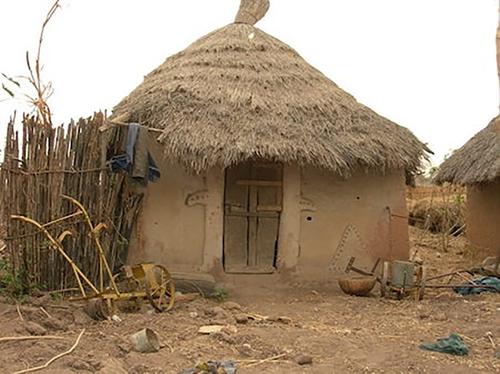当前位置:
X-MOL 学术
›
WIREs Clim. Chang.
›
论文详情
Our official English website, www.x-mol.net, welcomes your
feedback! (Note: you will need to create a separate account there.)
Politics of attributing extreme events and disasters to climate change
WIREs Climate Change ( IF 9.4 ) Pub Date : 2021-12-08 , DOI: 10.1002/wcc.750 Myanna Lahsen 1, 2 , Jesse Ribot 3
WIREs Climate Change ( IF 9.4 ) Pub Date : 2021-12-08 , DOI: 10.1002/wcc.750 Myanna Lahsen 1, 2 , Jesse Ribot 3
Affiliation

|
Climate change certainly shapes weather events. However, describing climate and weather as the cause of disasters can be misleading, since disasters are caused by pre-existing fragilities and inequalities on the ground. Analytic frames that attribute disaster to climate can divert attention from these place-based vulnerabilities and their socio-political causes. Thus, while politicians may want to blame crises on climate change, members of the public may prefer to hold government accountable for inadequate investments in flood or drought prevention and precarious living conditions. To be both strategic and moral, framing choices must therefore be sensitive to context-dependent political meanings and particularities, and to how the values implicit within analytic frames about the causes of disasters shape policy responses. Such sensitivity requires multicausal analysis of weather-linked disasters to illuminate a broader range of means to reduce the damages associated with climate change and weather extremes. Through examples from around the world, and especially Brazil, we discuss how and why climate-centric disaster framing can erase from view—and, thus, from policy agendas—the very socio-economic and political factors that most centrally cause vulnerability and suffering in weather extremes and disasters. We also offer a theoretical discussion of why attribution is not neutral. Analytic frameworks always embed choices about factors that matter, and thus are inherently normative and consequential for understandings of responsibility and action.
中文翻译:

将极端事件和灾害归因于气候变化的政治
气候变化肯定会影响天气事件。然而,将气候和天气描述为灾难的原因可能会产生误导,因为灾难是由地面上预先存在的脆弱性和不平等造成的。将灾害归因于气候的分析框架可以转移人们对这些基于地方的脆弱性及其社会政治原因的注意力。因此,虽然政客们可能想将危机归咎于气候变化,但公众可能更愿意让政府对防洪抗旱投资不足和不稳定的生活条件负责。因此,为了兼顾战略和道德,框架选择必须对依赖于背景的政治意义和特殊性以及分析框架中隐含的关于灾难原因的价值观如何塑造政策反应敏感。这种敏感性需要对与天气有关的灾害进行多因果分析,以阐明更广泛的方法来减少与气候变化和极端天气相关的损害。通过来自世界各地,尤其是巴西的例子,我们讨论了以气候为中心的灾难框架如何以及为什么可以从视野中抹去——因此也从政策议程中抹去——最核心地导致脆弱性和痛苦的社会经济和政治因素极端天气和灾害。我们还提供了关于为什么归因不是中性的理论讨论。分析框架总是嵌入对重要因素的选择,因此对于理解责任和行动来说本质上是规范的和必然的。
更新日期:2022-02-10
中文翻译:

将极端事件和灾害归因于气候变化的政治
气候变化肯定会影响天气事件。然而,将气候和天气描述为灾难的原因可能会产生误导,因为灾难是由地面上预先存在的脆弱性和不平等造成的。将灾害归因于气候的分析框架可以转移人们对这些基于地方的脆弱性及其社会政治原因的注意力。因此,虽然政客们可能想将危机归咎于气候变化,但公众可能更愿意让政府对防洪抗旱投资不足和不稳定的生活条件负责。因此,为了兼顾战略和道德,框架选择必须对依赖于背景的政治意义和特殊性以及分析框架中隐含的关于灾难原因的价值观如何塑造政策反应敏感。这种敏感性需要对与天气有关的灾害进行多因果分析,以阐明更广泛的方法来减少与气候变化和极端天气相关的损害。通过来自世界各地,尤其是巴西的例子,我们讨论了以气候为中心的灾难框架如何以及为什么可以从视野中抹去——因此也从政策议程中抹去——最核心地导致脆弱性和痛苦的社会经济和政治因素极端天气和灾害。我们还提供了关于为什么归因不是中性的理论讨论。分析框架总是嵌入对重要因素的选择,因此对于理解责任和行动来说本质上是规范的和必然的。











































 京公网安备 11010802027423号
京公网安备 11010802027423号